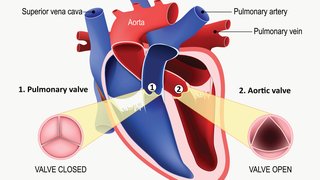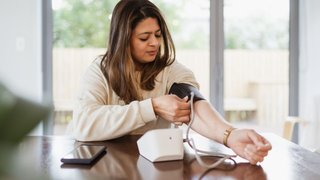The internet can be hazardous to your health. Really!
December 19, 2019

One of the most powerful health risks facing all of us in 2019 – and in the foreseeable future – is the proliferation of medical misinformation.
Every day, it spreads across the internet through platforms like Google, Facebook, YouTube and other social media, and patients end up making health decisions – sometimes life and death decisions – based on faulty and flat-out incorrect material.
That’s why earlier this year, as Editor-in-Chief of Circulation, I rallied more than 20 of my colleagues at the most prominent cardiology journals to co-author an article sounding the alarm about medical misinformation. As physicians and scientists, we can no longer stand around with our hands in our pockets as patients are misled by the dubious opinions of pundits, politicians and media personalities.
A part of the solution to this thoroughly modern problem could be found, ironically, in a work published over 2,000 years ago. Aristotle’s Rhetoric teaches us there are three essential elements to the power of persuasion:
- Logos, the strength of the argument
- Ethos, the credibility of the source
- Pathos, understanding the listener’s viewpoints
Many of us think logos is sufficient – that making a strong case should be enough. Plenty of people are passionate about hot-button medical issues such as vaccines, but that does not give them ethos – credibility.
As physicians, we often have the courage of our convictions and the science to back up our recommendations, but we must devote more attention to the other pivotal component of influence, pathos.
By better understanding our patients’ hopes and fears, we can build trust, show compassion, and ultimately arm them with the information they need to separate fact from fiction when it comes to making their health care decisions.
Follow the science, not the salacious headlines
There are plenty of reasons to embrace the internet – it provides instant access to information, and it gives everyone a voice. But when it comes to health care, it’s important to “vet the message” and be able to decipher the medically trained voices from the shrill, biased ones.
Complicating matters further, fake medical news tends to spread faster than the truth. I suppose it’s human nature to be enticed by a sensational headline, but this is not a game. Medical misinformation puts people in harm's way; here are just a few examples of how:
Staining the reputation of statins: Statins are the “gold-standard” for high cholesterol treatment.
They have been studied more than nearly any other drug and have been proven safe and effective, saving millions who are at high risk of heart attack or stroke. But stories exaggerating the side effects of statins, or leveling false claims about them causing cancer or memory loss, have caused many patients to stop taking their medication. Or refuse it entirely.
The benefits of statins are invisible; patients don’t always recognize that the medication helped them live another year without a heart attack or a stroke. But when they stop taking them, it puts their lives at risk.
Linking vaccines and autism: There is zero evidence to suggest vaccines cause autism, and a great deal of scientific data proves it is not true. But the claim has spread so fast and far that it has led to measles outbreaks in major cities around the globe, putting people at risk unnecessarily. Measles is not just a little rash that you get over in three or four days. It can have life-threatening consequences. And it is important to recognize that when a parent withholds vaccination from a child, they are putting others at risk, not themselves, namely their child and the child’s contacts.
Questioning the value of 3D mammograms: Just recently, USA Today published an article suggesting hospitals are pushing women to get 3D mammograms, or tomosynthesis, rather than 2D mammograms simply to pad the bottom line. But as my colleague Dr. Basak Dogan, Director of Breast Imaging Research at UT Southwestern, details in a recent article, 3D mammograms provide very specific advantages, including finding smaller cancers earlier. It is also the preferred screening modality of the American Society of Breast Surgeons and covered in full by most insurance companies.
It’s important for patients to have the facts, not just innuendo.
5 ways to separate medical fact from fiction
There is a lot of credible health news online, but there is also a sea of suspect material. Here are a few ways to tell the difference:
- Identify the source: Professional health organizations (.org), government agencies (.gov), and medical institutions (.edu) provide a wealth of excellent online health information, and you can identify them by the last three letters of their web address. A “.com” website indicates a for-profit entity, which may be OK, but consider its source and motivation.
- Review the research: Oftentimes, media outlets will cite a study and provide a link. Click through and review the research yourself. Some studies have small sample sizes or may seem too preliminary. Or the article may overstate the findings. Judge for yourself.
- Check the date: With the speed of medical advances today, it’s best to seek the most current health information. Even trusted sites may have outdated material.
- Narrow your search: Develop a list of trusted health sites, such as the Centers for Disease Control and Prevention, the National Institutes of Health, and UT Southwestern’s MedBlog, where the articles are authored by physicians and scientists. Start there and expand out if you’re not finding the answers you need.
- Trust your instincts and talk to your doctor: The internet is a logical place to start, but you should talk with your doctor before making a major health decision. I tell my patients, I will give you my recommendation based on modern science and my experience as a cardiologist. But, ultimately, it’s your body and your life. You make the decision. I just want to make sure you have all the facts before you do.
Taking steps to stem the tide of misinformation
In March, the American Medical Association sent a letter to the CEOs of the major social media channels urging them to help combat misinformation about vaccines.
Personally, I would love to sit down with them and tell them that we in the academic medicine community stand ready to help stem the tide of medical misinformation and make a difference on a grand scale. We can review content from a scientific standpoint and develop a set of standards for credibility.
Because when it comes to health information, the public and our patients deserve the truth.











